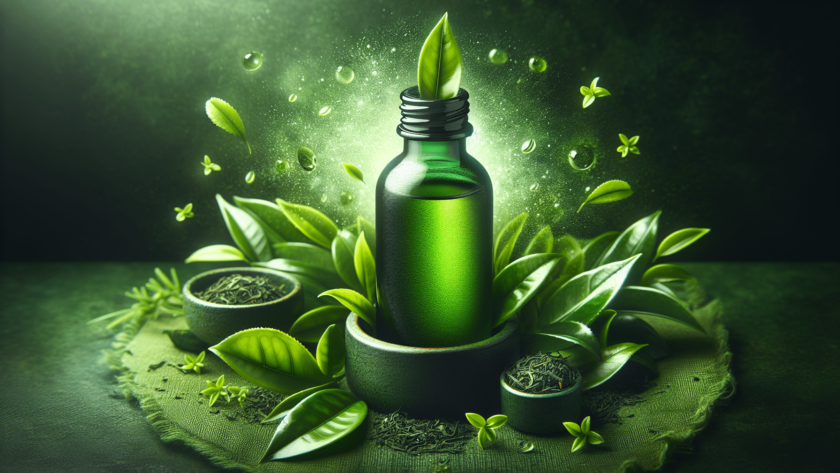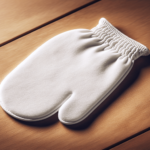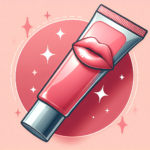Are you tired of dealing with the constant shine and pesky breakouts that come with having oily skin? Look no further, because we have the solution for you. In this article, we will explore the best skin care products and routines specifically tailored to oily skin types. Say goodbye to excess oil and hello to a fresh, matte complexion. So, if you’re ready to achieve clear and balanced skin, let’s dive into the world of oily skincare together.
Understanding Oily Skin
Oily skin is a common skin type characterized by excessive oil production by the sebaceous glands. This overproduction of oil, called sebum, can leave the skin looking shiny, greasy, and prone to clogged pores. Understanding the causes, characteristics, and common problems associated with oily skin is crucial in developing an effective skincare routine.
Causes of Oily Skin
Several factors contribute to the development of oily skin. One of the primary causes is genetics. If oily skin runs in your family, there’s a higher chance that you will also have oily skin. Hormonal fluctuations, particularly during puberty or hormonal imbalances, can also lead to increased sebum production. Environmental factors such as humid climates, high temperatures, and pollution can stimulate the sebaceous glands to produce more oil. Lastly, using harsh or drying skincare products can cause your skin to overcompensate for the lack of moisture by producing excess oil.
Characteristics of Oily Skin
Oily skin is typically characterized by a shiny appearance, especially in the T-zone (forehead, nose, and chin). The skin may feel greasy to the touch and have enlarged pores. Oily skin is also more prone to acne breakouts and blackheads due to the excess oil clogging the pores. Additionally, makeup tends to slide off easily and may require frequent touch-ups throughout the day.
Common Problems Associated with Oily Skin
Oily skin can present various challenges, including acne breakouts, blackheads, and an overall greasy and shiny complexion. The excess oil can trap dirt and bacteria in the pores, leading to inflammation and the formation of pimples. Blackheads, which are clogged pores exposed to air, are also common in oily skin. Furthermore, oily skin can make it difficult for makeup to stay in place, causing it to smudge and fade quickly. Managing these common problems requires a skincare routine tailored to address the specific needs of oily skin.
Building an Effective Skincare Routine
To effectively manage oily skin, it’s essential to establish a comprehensive skincare routine that includes cleansing, toning, moisturizing, exfoliation, and sun protection.
Cleansing
Cleansing is a crucial step in any skincare routine, especially for oily skin. Look for gel cleansers specifically formulated for oily skin. These cleansers are lightweight and help remove excess oil without drying out the skin. Gently massage the cleanser onto damp skin, focusing on the T-zone and other oily areas, then rinse thoroughly with lukewarm water.
Toning
Toning is an important step that helps balance the skin’s pH, minimize the appearance of pores, and remove any residual oil or impurities. Alcohol-free toners are ideal for oily skin as they are less likely to strip the skin of its natural oils, which can trigger increased oil production. Apply the toner to a cotton pad and gently swipe it across your face, avoiding the eye area.
Moisturizing
Contrary to popular belief, oily skin needs moisturization too. Opt for lightweight gel moisturizers or oil-free moisturizers specifically formulated for oily skin. These moisturizers provide hydration without adding excess oil to the skin. Apply a small amount to your face and neck, focusing on dry areas and avoiding the T-zone if necessary.
Exfoliation
Exfoliation is important for oily skin to remove dead skin cells, unclog pores, and promote a smoother complexion. Chemical exfoliation with ingredients like salicylic acid or glycolic acid is highly effective for oily skin. These exfoliants penetrate the pores and dissolve the build-up of oil and debris. Physical exfoliation with a gentle scrub or brush can also be incorporated, but be cautious not to overdo it, as this can irritate the skin.
Sun Protection
Sun protection is essential for all skin types, including oily skin. Look for oil-free or non-comedogenic sunscreens that won’t clog pores or contribute to excess oiliness. Gel-based sunscreens provide a lightweight texture that is easily absorbed by the skin. Powder sunscreens can also be a great option for oily skin as they provide a mattifying effect while offering sun protection.
Choosing the Right Ingredients
When selecting skincare products for oily skin, some key ingredients can help regulate oil production, minimize pore size, and maintain a healthy complexion.
Salicylic Acid
Salicylic acid is a beta-hydroxy acid that penetrates the pores and exfoliates the skin, effectively removing excess oil and preventing breakouts. It also has anti-inflammatory properties that can help reduce redness and inflammation associated with acne.
Glycolic Acid
Glycolic acid is an alpha-hydroxy acid that exfoliates the skin’s surface, promoting cellular turnover and revealing a brighter and smoother complexion. It helps remove excess oil, unclog pores, and improve skin texture.
Hyaluronic Acid
Hyaluronic acid is a hydrating ingredient that can benefit oily skin as well. Despite its name, it doesn’t add oiliness to the skin. Instead, it attracts and retains moisture, providing hydration without a greasy feel.
Niacinamide
Niacinamide, also known as vitamin B3, helps regulate sebum production, tighten pores, and improve the overall appearance of oily skin. It also has anti-inflammatory properties that can calm redness and irritation.
Tea Tree Oil
Tea tree oil has natural antibacterial and antimicrobial properties, making it an effective ingredient for oily skin prone to acne. It helps combat bacteria and reduce inflammation, promoting clearer and healthier-looking skin.
Best Cleansers for Oily Skin
Choosing a suitable cleanser is essential for effectively controlling oil and maintaining a balanced complexion. Consider the following options for oily skin:
Gel Cleansers
Gel cleansers are lightweight and water-based, making them an excellent choice for oily skin. They effectively remove excess oil and impurities without stripping the skin of its natural moisture.
Foam Cleansers
Foam cleansers create a rich lather that gently removes oil and debris from the skin’s surface. Look for formulas that are non-drying and free from harsh ingredients that can exacerbate oiliness.
Charcoal Cleansers
Charcoal cleansers are particularly beneficial for oily skin as charcoal has absorbent properties that can help draw out impurities and excess oil from the pores. They leave the skin feeling clean and refreshed.
Oil-based Cleansers
Contrary to the misconception that oily skin should avoid oil-based products, oil-based cleansers can be suitable for oily skin. Oil-based cleansers effectively dissolve oil, makeup, and impurities, leaving the skin clean and balanced.
Recommended Toners for Oily Skin
Toners play a vital role in maintaining balanced skin and preparing it for the next steps in your skincare routine. Here are some recommended toners for oily skin:
Alcohol-Free Toners
Alcohol-free toners are gentle and less likely to strip the skin of its natural oils, which can trigger the overproduction of oil. These toners help balance the skin’s pH and remove any remaining residue after cleansing.
Astringent Toners
Astringent toners are ideal for oily skin as they can help tighten pores and control excess oil production. Look for toners containing ingredients like witch hazel or tea tree oil for their natural astringent properties.
Exfoliating Toners
Exfoliating toners contain gentle acids like glycolic or lactic acid, which help remove dead skin cells and unclog pores. Regular use can improve skin texture and prevent breakouts.
Hyaluronic Acid Toners
Hyaluronic acid toners provide lightweight hydration without adding excess oil. They help maintain the skin’s moisture balance and leave it feeling plump and refreshed.
Moisturizers for Oily Skin
Even oily skin needs proper moisturization to maintain a healthy barrier and prevent excessive oil production. Look for the following types of moisturizers suitable for oily skin:
Lightweight Gel Moisturizers
Gel moisturizers are lightweight and formulated to provide hydration without a greasy or heavy feeling. They absorb quickly into the skin, leaving it refreshed and balanced.
Oil-Free Moisturizers
Oil-free moisturizers are specifically designed to hydrate oily skin without adding additional oil and shine. These moisturizers usually have a lightweight texture, making them ideal for daily use.
Hydrating Serums
Hydrating serums containing ingredients like hyaluronic acid or niacinamide can provide a boost of hydration to oily skin without adding a heavy or greasy feel. These serums are often fast-absorbing and can be layered under moisturizers.
Water-Based Moisturizers
Water-based moisturizers are formulated with a high water content, making them lightweight and suitable for oily skin. They provide hydration without clogging pores or contributing to excess oiliness.
Exfoliation Techniques for Oily Skin
Regular exfoliation is crucial for oily skin to remove dead cells and unclog pores. Consider the following exfoliation techniques suitable for oily skin:
Chemical Exfoliation
Chemical exfoliation involves the use of exfoliants like salicylic acid or glycolic acid to dissolve the bonds between dead skin cells, encouraging their shedding. These exfoliants penetrate the pores effectively, helping to prevent breakouts and improve skin texture.
Physical Exfoliation
Physical exfoliation involves using a scrub or brush to manually slough off dead skin cells. When incorporating physical exfoliation into your routine, be gentle and avoid using harsh scrubs that can irritate the skin. Opt for softer exfoliating particles and use gentle circular motions.
Exfoliating Masks
Exfoliating masks are a convenient way to incorporate exfoliation into your skincare routine. Look for masks containing ingredients like clay or fruit enzymes that gently remove dead skin cells and absorb excess oil.
Clay Masks
Clay masks can be beneficial for oily skin as they help absorb excess oil and purify the pores. Look for masks containing ingredients like kaolin or bentonite clay, which have absorptive properties.
Specialized Treatments for Oily Skin
In addition to a regular skincare routine, specialized treatments can target specific concerns associated with oily skin. Consider the following treatments:
Spot Treatments
Spot treatments containing ingredients like benzoyl peroxide or salicylic acid can target individual acne breakouts. Apply a small amount directly to the blemish to help reduce redness and speed up the healing process.
Oil-Controlling Serums
Oil-controlling serums are specifically formulated to regulate sebum production and minimize excess oiliness. These serums can help mattify the skin and improve its overall appearance.
Sebum Absorbing Sheets
Sebum absorbing sheets are a convenient option for managing excess oil throughout the day. Simply press the sheet onto areas with excess oil, and it will absorb the oil without disturbing your makeup.
Oil Balancing Masks
Oil balancing masks help control oil production and balance the skin. Look for masks with ingredients like green tea or tea tree oil, which have properties that can help regulate oiliness.
Sun Protection for Oily Skin
Protecting your skin from the sun’s harmful UV rays is crucial, even if you have oily skin. Consider the following sun protection options:
Oil-Free Sunscreens
Oil-free sunscreens are specifically formulated to provide sun protection without adding excess oil to the skin. These sunscreens usually have a lightweight texture that is easily absorbed.
Non-Comedogenic Sunscreens
Non-comedogenic sunscreens are designed to not clog pores or contribute to acne breakouts. These sunscreens are suitable for oily skin and won’t exacerbate oiliness.
Gel-Based Sunscreens
Gel-based sunscreens offer a lightweight texture that absorbs quickly without leaving a greasy residue. These sunscreens are ideal for oily skin types.
Powder Sunscreens
Powder sunscreens provide a mattifying effect while offering sun protection. They can be used throughout the day to reduce shine and touch up makeup without adding extra oil.
Skincare Tips for Oily Skin
In addition to a comprehensive skincare routine, incorporating these tips into your daily habits can help manage oily skin effectively:
Avoid Over-cleansing
While cleansing is important for oily skin, over-cleansing can strip the skin of its natural oils, causing it to produce even more oil. Stick to cleansing twice a day, morning and night, to maintain a balanced complexion.
Don’t Skip Moisturizer
Even oily skin needs moisture to stay healthy. Skipping moisturizer can actually exacerbate oiliness as the skin tries to compensate for the lack of hydration by producing more oil. Choose lightweight, oil-free moisturizers to keep your skin hydrated without adding extra shine.
Use Oil-Control Products Sparingly
While it’s tempting to use numerous oil-control products, using them excessively can disrupt the skin’s natural balance. Use oil-control products sparingly and only on areas that need extra attention, such as the forehead or nose.
Don’t Touch Your Face
Touching your face throughout the day can transfer bacteria and oil from your hands to your skin, leading to breakouts and increased oil production. Resist the urge to touch your face and keep your hands clean to prevent unnecessary irritation.
Blotting Papers for Quick Fixes
If you need a quick fix for excessive oiliness throughout the day, carry blotting papers with you. Gently press them onto oily areas to absorb the excess oil, without disrupting your makeup or drying out your skin.
In conclusion, understanding oily skin and implementing a targeted skincare routine can help manage excess oil, minimize breakouts, and maintain a balanced complexion. Remember to choose products specifically formulated for oily skin, incorporate exfoliation and sun protection, and follow these skincare tips for a healthy and radiant appearance. With the right approach, you can achieve the best care for your oily skin and enjoy a glowing complexion.




